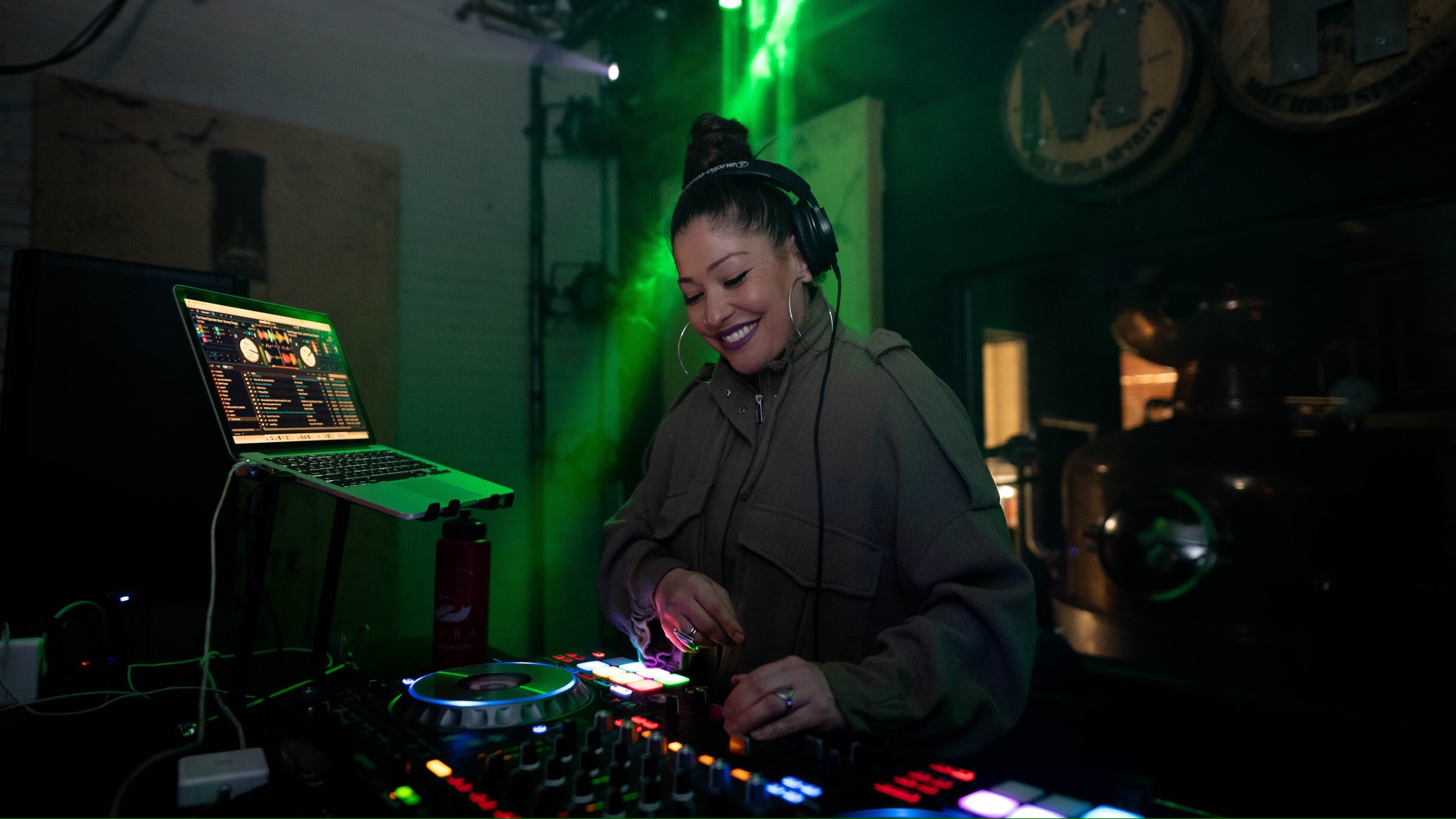As the reach of the coronavirus pandemic continues to push people into quarantine and lawmakers plead for “social distance,” musicians world-wide are left staring at the ghosts of touring schedules, gigs big or small, and careers that depends almost entirely on public participation. Banned live performances introduce a myriad of lost opportunities including the ability to sell merchandise, network, and get the exposure needed to further a career. Musicianship in the age of banned live music is uncharted territory, and local musicians are now forced to build a new course out of a shattered gig schedule. 303 Magazine talked to a few local musicians to see what they plan to create from the pieces.
Tenth Mountain Division
Over St. Patrick’s Day weekend, members of Tenth Mountain Division hosted a small get-together for friends in the industry who wanted to “drink away their sorrows,” as vocalist and keyboardist Campbell Thomas put it. The source of such sorrows? Well, as of a week ago, Tenth Mountain Division had a headlining show at the Bluebird Theater on March 20 and a six-week-long tour to follow.
As of today, all of those shows are gone. Right at the time when the tour season normally ramps up, the coronavirus began to spread, and its proliferation prompted the rapid dissolution of all live gigs. Yet why is the impossibility of gigging also deathly for musicians in its own way?
“Well, because we don’t make money off of records anymore,” emphasized Thomas. “That source of income no longer exists. Unfortunately, because of streaming — though streaming’s awesome because it makes all music accessible — you can’t sell records. The only true income for 99 percent of musicians out there right now is through live performances and merchandise.”
What Thomas described is lamentably true: streaming services pay musicians at the disrespectfully paltry rate of a third of a cent per stream — at best. That’s the higher end of the pay grade. With their largest source of income barred, musicians now have to think outside the box, though their first thought seems to be commonly shared.
“Tons of musicians I know are trying to do online video streams of them playing,” said Thomas. “Some seem successful. Some are just, you know, more content to just be thrown on Facebook. But everyone’s doing everything they can, you know?”
Nevertheless, Thomas stressed the importance of monetarily investing in these musicians during this time, if you can. Drop some coinage into their virtual tip jar, throw money toward their Kickstarter or buy their merch, because that’s the only way full-time musicians are making money right now.
While we’re on the subject, check out Tenth Mountain Division’s merchandise, including their physical and digital album.
Float Like a Buffalo
On March 11, Float Like a Buffalo left for their first national tour. On March 13, never leaving Colorado, they turned around.
Canceling the tour was inevitable, and in the best interest for public health, singer Cory Pearman said, but that didn’t make it much easier to swallow. “It was one of the hardest decisions I ever had to make, honestly.”
As a last hoorah of sorts, Float Like a Buffalo played a final live show on March 14 at the Alley in Littleton, before gatherings of all sizes were prohibited. Part of the band showed up early for the show, wiping down all the mics and PA system with Clorox wipes (two band members would be at a higher risk of complications if they were to contract the coronavirus.) At the end of the show, manager Sarah Shuel said a stranger gifted the band with a “large sum of money” they will put toward their music.
“We’re not stopping music,” Pearman said. Float Like a Buffalo has transformed their canceled tour into a new live-streamed tour, “Don’t Take the Funk Couch Tour,” joining many bands in the effort to continue performances online. “We’re gonna continue it however we can.”
Future Garden
Kyle Hartman is the founder and talent buyer at Future Garden, an agency that helps musicians evolve their art and break out on a larger level. Although live performances are valuable in the way they connect musician to a fan, Hartman said recent cancellations dealt an especially hard blow for new artists as they prohibit the most valuable tool — exposure.
“It’s sad so many people’s work is going to be put on hold, or not seen, because of this,” Hartman said.
Neoma, Hartman’s client, was on the road and primed to perform at SXSW when they got the news — canceled. The Ecuadorian singer was forced to turn her entire tour around, which would’ve concluded with a performance at Treefort Music Fest (which has since been postponed until September.) Another client of Hartman’s — Ramakhandra — was set to headline 303’s Off the Record event, also postponed.
For now, Hartman plans to “observe how things play out,” mostly online, alluding to how this time is “transitioning us faster” to a virtual society. Musicians are now more than ever relying on views during live streams. Donating to such streams, as well as buying merch and circulating music are a few ways Hartman said you can directly help musicians during the pause.
Oxeye Daisy
Denver rock group Oxeye Daisy was on a roll. Like Neoma, they had a gig at Treefort this month, as well as a number of shows around the country they were forced to cancel. On the day lead singer and guitarist Lela Roy talked to 303, they were scheduled to perform a gig with Palehound and Adult Mom at Larimer Lounge.
Roy is optimistic this (forced) time inside will breed creativity and maybe some new music, but like everyone else, the group is uncertain about the ever-changing social protocols and whether or not it would be safe to meet as a group in the recording studio.
“We’re all in different stages in our lives,” Roy said. She noted that the bass player, Eddie Schmid, is a father. “I hope that we’re able to find enough stability in the next few weeks that we’ll feel more comfortable working on our full-length album.”
Slow Caves

For the Fort Collins-based indie-rock band, Slow Caves, who released their first album after five years of touring, performing live precedes the drive to create music. Perhaps their month-long, nine-date west coast tour from March 13 to April 11 would’ve provoked some major sonic inspiration, but the members of Slow Caves — and their fans — never got the chance to find out.
In addition to pulling the plug on their spring tour, the band had to cancel their upcoming show at the Bluebird Theater with The Districts and postpone their gig at Lost Lake. (Hopefully, the latter’s rescheduled date of August 14 is far enough out.) All these performance revocations represent a loss of three to four thousand dollars. This loss feels all the worse because, as bandmember David Dugan explained, the money would’ve gone into several pockets — not just the musicians’. Booking agents are just one example of the many workers that depend on the cashflow that stems from Slow Caves playing live. “And then, of course, there are other bills, mainly van insurance and loan payments, that we were planning to pay with money from these shows,” said Dugan.
Still, this psychological weight pales in comparison to what they would feel if they carried on with live performances in spite of the prohibition of large public gatherings. “I think we’re all bummed out, but [Slow Caves] realizes there are way bigger problems out here than us not getting to go on tour or play shows,” Dugan assessed. “While it sucks, we realize there is nothing we can really do about it and don’t want to put our fans, friends, or family at risk by holding an event that could potentially spread the virus. I think the only thing you can do is be positive, keep creating art in your home and hope that we all make it through this.”
Slow Caves’ next concert is sooner than you think — they performed at 7 p.m. in the NoCo Live from Home Show live-stream concert last Saturday, March 21. To support the band, you can buy their record (and other swag) from their online merch store.
DJ Cyn

Cynthia Mardones has been freestyle DJing around Colorado for more than a decade under the name of DJ Cyn. She purposefully isn’t in the habit of uploading her musical creations to online streaming platforms, since the purest and most marvelous expression of her art is through live performance. For DJs, she emphasized to 303, their primordial product is the show.
Suffice to say, DJ Cyn’s particular role within the music industry is especially vulnerable during this time. All her gigs for the next two months are canceled. Some of the venues she was scheduled to play at are honoring the cancellation fees outlined in their contract, and are compensating her, however meagerly. Still, venues themselves are also suffering financially, and many haven’t coughed up any commiseration coinage to the acts they booked months ago. For the most part, her source of income for the next eight weeks has dried up.
“It’s a tough question,” she answered in response to how people could support DJs during this time. Cyn has thought about putting a price on her stickers, which she usually gives out free, but she’s a little hesitant to try and make a profit when it seems nearly everyone — especially those in the music scene — are in a financially precarious spot. “Still, I think DJs need to find a way to let people support us,” she said.
She encouraged people to book DJs for the far future with the hope that things will clear up by then, but the range of possible futures ahead of us is dizzyingly vast. We could get a handle on the spread of the virus in a few weeks, or we could be living under these restrictions for a year.
A sense of sadness comes with knowing that the activity and atmosphere that bring you the most joy are indefinitely banned. “Without people and crowds, I wouldn’t be able to do what I love most in life,” DJ Cyn expressed. Still, she sees the light at the end of the tunnel. It was important for her to close our conversation with a call for both hope and action: “Please everyone take care of yourself and others around you! We will get through this.”
Sterling Swanson of The Hype Pathetics, The Swashbuckling Doctors

On Friday, March 13 — just after Polis ordered the statewide cancellation of all events expected to bring in more than 250 people — Sterling Swanson, who is a member of two local bands, was notified that four of his upcoming gigs were canceled. In the span of a few hours, $800 of profit vanished.
To add another nail in the coffin, Governor Polis mandated on Monday, March 16 that all food and beverage establishments close their dine-in service for the next eight weeks. That effectively scraps all bar gigs for the next month.
A musician typically earns around $100 per bar or restaurant gig, which is comparable to that of a 9-hour shift at a minimum-wage job. To musicians who rely on their recurring gig slots, the dissolution of this type of performance is as fiscally troubling as getting fired without notice. However, Swanson underlined that all his losses aren’t financial. “The Hype Pathetics is a newer band so we wanted to get our names out there, and now we don’t have that chance until things settle down,” he said. It’s hard to encourage fans to stream your music if you can’t get your name out there in the first place.
Though the show mustn’t go on, people’s lives must, and musicians are determined to keep their careers going through this crisis, too. “The Swashbuckling Doctors plan on using the free time to work on new songs and plan our upcoming releases,” assured Swanson. “The Hype Pathetics might get some recording in and get our sound a bit tighter.”
Christopher Ryan

“Like many musicians, I have a number of different music-related income streams,” said the Lakewood-based multi-instrumentalist, Christopher Ryan. In addition to maintaining his own platform as a singer/songwriter, he also plays percussion for other artists and teaches music lessons.
“The social distancing recommended by health care professionals makes in-person music lessons impossible,” Ryan expressed, but that hasn’t stopped him from connecting with his students. In the past week, he moved all his lessons to an online video platform to keep his pupils safe. With a heavy heart, he reported that one of his students recently canceled due to funding concerns — something Ryan, unfortunately, can relate to. Around 10 of his live events (and counting) have been canceled, which takes a financial toll.
Ryan and a lot of his music industry peers are stepping up their live-stream and YouTube game to keep fans engaged when they can no longer do so in person. “I have been preparing new content for months and have a stockpile of videos — most recorded on the road in 2019 — that I was planning on rolling out later this year. This may now happen much sooner,” Ryan disclosed.
For this musician, the vital role that music and art play in our lives and in our communities becomes all the more clear — and all the more necessary — in times of crisis. There’s no doubt musicians will rise to this new challenge..





Interesting they threw a DJ in the middle of a musicians topic.